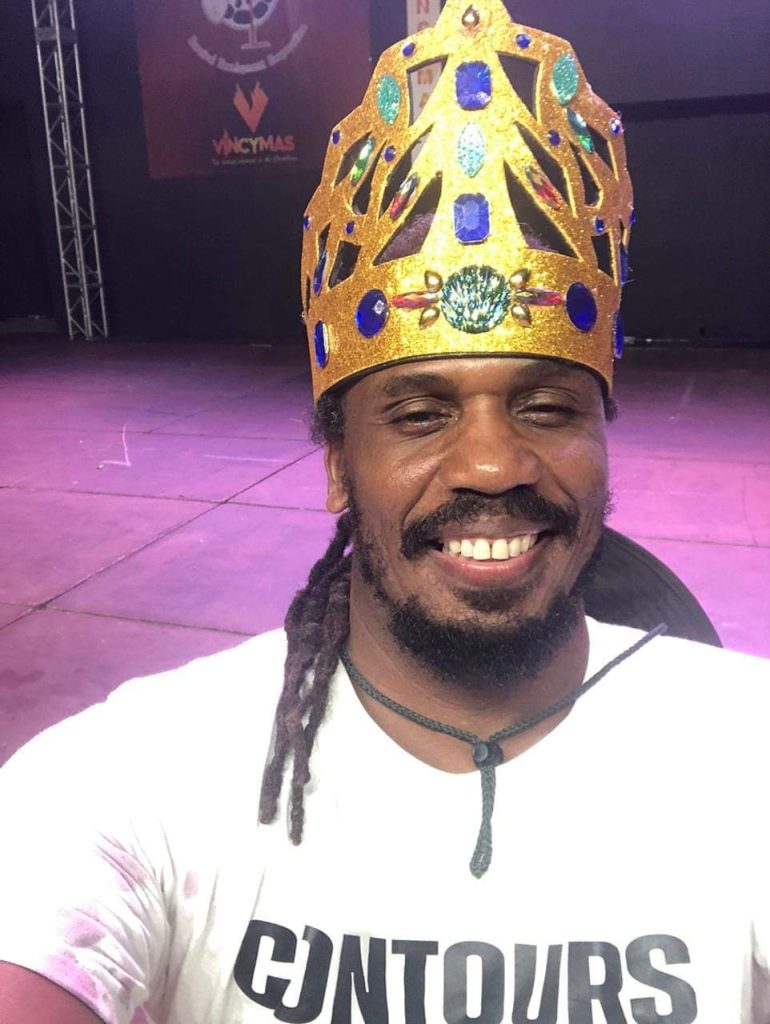ANN: Congratulations on your victories! How does it feel to have achieved such a significant milestone in your career?
Madzart: I don’t think it’s sunk in yet. I’m just more happy that I was able to execute the performance on the level that me and everyone behind the scenes anticipated.
ANN: What inspired you to start your journey in calypso and soca music?
Madzart: I love music and I’ve never been closed-minded about genres. Even attempting soca was like a normal day-to-day thing. The first soca I ever wrote in my life was conceptualized in 1997 while I was still trying to make it. That’s “Helicopter,” which was recorded and released in 2001.
ANN: Can you tell us about the creative process behind your winning songs?
Madzart: That’s like asking about the winning car. While a car that can perform is important, it’s the driver that makes the difference. It’s not about better or worse drivers but matching the right driver to the right car.
ANN: How do you balance the different styles and demands of calypso, soca, and ragga soca?
Madzart: Even though I first entered calypso in 2009, I never really did it again until now. So, I don’t think I’ve been in it long enough to know how to balance them. This year, I had fellow and former calypso monarchs advising and mentoring me through it all.
ANN: What challenges did you face along the way, and how did you overcome them?
Madzart: Remembering new lyrics for every performance and having to sing them as if no one has ever heard them before. Every word is important—diction, clarity, facial expression, and body language.
ANN: Which of your achievements are you most proud of, and why?
Madzart: I would say this calypso monarch. In soca and ragga, I am competing with my contemporaries, but in calypso, I’m competing with my heroes and artists who I grew up listening to.
ANN: How do you see the future of calypso and soca music evolving?
Madzart: I’m no fortune teller, but I can tell you that one thing calypso needs is more airplay. If calypso is about punchline and picong, you don’t need any spoiler alerts. You only get one opportunity to hear a song for the first time.
ANN: What message do you hope your music conveys to your audience?
Madzart: There’s no one message. Every song has its own message.
ANN: Are there any particular artists or mentors who have significantly influenced your career?
Madzart: Many, and that’s because I am open to learning from everyone.
ANN: What advice would you give to aspiring musicians looking to follow in your footsteps?
Madzart: Make the music you love, and sometimes you will get lucky, and other people will like it too.
ANN: What are your plans for the future? Are there any new projects or collaborations we can look forward to?
Madzart: I plan on remastering and re-releasing some records that may have gotten lost in the past.
ANN: How do you stay connected with your fans and the calypso/soca community?
Madzart: I engage with them through performances, social media, and community events.
ANN: Can you share a memorable moment from one of your performances or competitions?
Madzart: This calypso monarch with the Iron Man scene stands out.
ANN: What role do you think music plays in cultural and social movements today?
Madzart: The same role it played yesterday and will play tomorrow—it’s the rhythm of the people.
ANN: Is there anything you would like to say to your supporters and those who have helped you along the way?
Madzart: Much love and appreciation to the people who made the songs theirs. Special gratitude to my coach in all this, the legend Carlton “CP” Hall. He said to me, “No matter what they say about criteria, impact on the audience matters.” Also, my former bandmate and multiple calypso title holder, Shaunelle McKenzie, who, after my very first showing in the tent, said, “Maddzart, when you sing soca, you are entertaining, but calypso is teaching.” She marked me after every performance and recommended some other calypso performances I should study.

